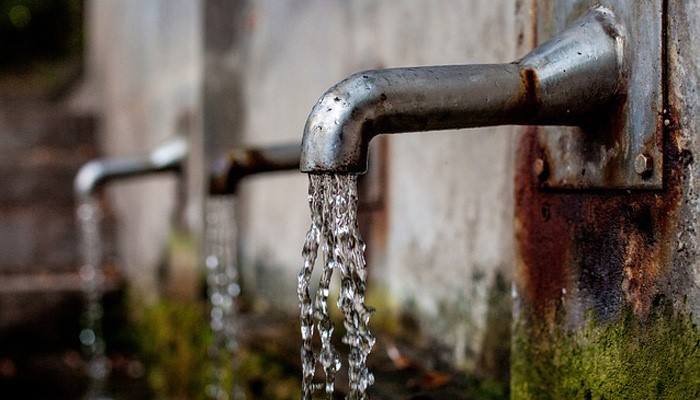Supply situation of the population in the sectors water, food and energy – Republic of Namibia, in conversation with Thomas Wegener, CEO and founder of GrowExpress Ltd., Ibadan Nigeria
Namibia is one of the driest countries in Africa. More than 80 percent of the country’s land area is covered by desert or semi-desert, and the country is regularly affected by extreme and prolonged droughts. Thomas Wegener, former decathlete and founder of GrowExpress Ltd. and chairman of the board of the nonprofit Farmer Future e.V. in Berlin, is familiar with the problem on the ground as an international manager through numerous projects he has supported on the continent. „The usable drinking water supplies are unevenly distributed and any potential that is still available can only be found on the rivers that are constantly carrying water in the northern and southern border areas of the country,“ explains Thomas Wegener. The water of these rivers, Kunene, Okavango, Zambezi and Orange, has to be shared with neighboring countries (Angola, Botswana, Zambia, South Africa). „Studies confirm that the country’s groundwater is regionally highly saline and thus partly undrinkable, or requires technically complex and expensive treatment. There is still potential in deep groundwater deposits in the north of the country, which have only been partially explored to date and which also need to be shared with neighboring Angola,“ says Thomas Wegener. Around 90 percent of the Namibian population has access to drinking water. There are differences between rural (85 percent on average) and urban (around 98 percent) areas. Among the poorest sections of the population, only about 50 percent have access to drinking water, which varies greatly from region to region.
Climate change as a challenge for Namibia
The crisis-ridden water situation in Namibia is exacerbated by climate change. In most of the country, the potential evaporation rate is at least five times higher than the average annual precipitation. As average temperatures increase, groundwater recharge will be even more limited in the future. Inadequate strategic planning in the water sector, as well as investment backlogs in water supply maintenance and expansion due to an economic and budgetary crisis, have led to a worsening of the water supply in the contributed to a deterioration of the situation in recent years.
Food and water supply – many development opportunities given
The agricultural economy that takes place on communal land plays a crucial role in feeding the rural population. According to Thomas Wegener, „Productivity and profitability of small-scale farms are often low, considerable storage and post-harvest losses are incurred due to a lack of harvesting technologies, and long transport routes make marketing difficult. Other deficits include insufficient diversification of agricultural production, inadequate soil, pasture and water management, and insufficient promotion of innovative business models. In addition, the consequences of climate change are having a negative impact on land use and food production. Poor households and children are particularly affected by the lack of diversified food and feed predominantly on the staple food of maize.“
The Food and Agriculture Organization of the United Nations (FAO) currently classifies 425,000 of Namibia’s approximately 2.5 million people as severely food insecure, and 650,000 are severely food insecure, with approximately one-third of the population receiving food assistance. Current climate models predict a further deterioration of climatic conditions for Namibia due to extreme weather events, among other things, with corresponding negative consequences (crop failures, pest infestations, soil erosion and leaching, etc.). Africa is diverse and is seen from the outside as a black continent whose internal structure is often unknown. The extractivism of the economies, poor educational conditions and other development obstacles must be overcome.
Responsible in terms of press law:
Kingsley Ekwueme
Managing Director
GrowExpress Ltd.
Contact:
GrowExpress Limited
Kingsley Ekwueme
Managing Director – GrowExpress Ltd.
Cocoa House, Dugbe
200263 Ibadan
Nigeria
Tel:+234 7031135981
Mail: AtYourService@growexpress.biz
Web: https://growexpress.org
Company Description:
GrowExpress Ltd office is located in Nigeria, Cocoa House, Dugbe, 200263 Ibadan. Completed in 1965 at a height of 105 meters, Cocoa House was once the tallest building in Nigeria and the first skyscraper in West Africa. It is located in Dugbe, one of the main commercial areas in Ibadan, Oyo State, Nigeria. Grow Express Ltd. manages an estate of 800 hectares about 200 kilometers north of the megacity of Lagos, Nigeria. For more information, visit: https://growexpress.org
PRESSEKONTAKT
GrowExpress Limited
Kingsley Ekwueme – Managing Director
Cocoa House, Dugbe
200263 Ibadan, Nigeria
Website: https://growexpress.org
E-Mail : AtYourService@growexpress.biz
Telefon: +234 7031135981
